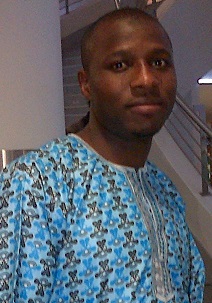
Azeez is a Barrister and Solicitor of the Supreme Court of Nigeria. He holds an LLB degree from Ahmadu Bello University, Zaria, LLM from University of Lagos, and a Bar certificate from the Nigerian Law School. He is a member of the Nigerian Bar Association and has worked with some top law firms in Nigeria including Animashaun, Animashaun & Associates. During his compulsory national service, Mr. Azeez represented and rendered free legal services to twenty inmates of Aba prison. He has attended several national and international conferences and he is currently a lecturer at Kampala International University, Uganda and specializes in Islamic Law, Commercial Law and Oil and Gas Law. He is happily married with children.
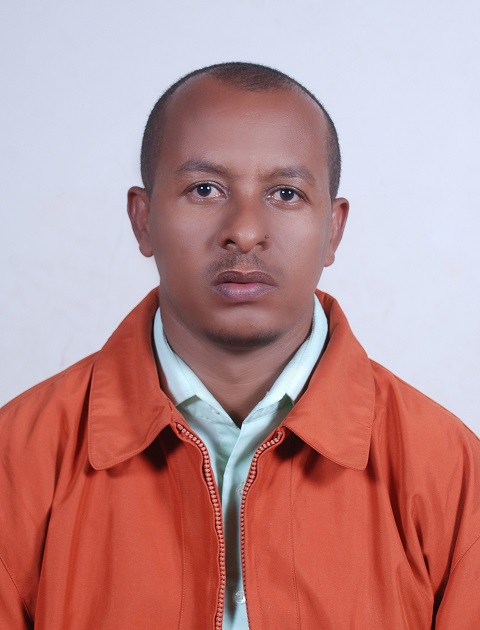
Tadesse Melaku has a master's degree in Public and Constitutional Law from Addis Ababa University and taught at various universities in Ethiopia. Currently, he lectures at Hawassa University School of Law. His main research areas are constitutional law, federalism, human rights and multiculturalism. He has published a book on constitutional law and a journal article on comparative constitutional adjudication.
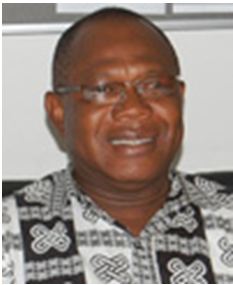
Atiemo's research interests include the concept of the secular in Akan traditional states, definitions of religion for administrative and legal purposes in Ghana, human rights and indigenous cultures of Ghana, and African Hindus in Ghana. He is the author of "Punish my Husband but not so Hard: Religion, Customary Values and Conventional Approaches to Human Rights in Ghana" in Religion and Human Rights 7 (2012) 71-93. Atiemo also authored "Religion and the Inculturation of Human Rights in Ghana" (London: Bloomsbury, 2013).
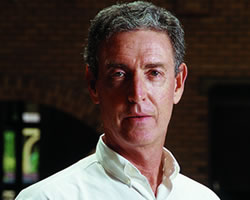
T W Bennett BA LLB (Rhodes), PhD (UCT), Professor in the Department of Public Law, Fellow of the University of Cape Town and Alexander von Humboldt Foundation. Current research interests include customary law, traditional African religions, the implications of legal pluralism in a constitutional democracy and the emergence of an ubuntu jurisprudence.
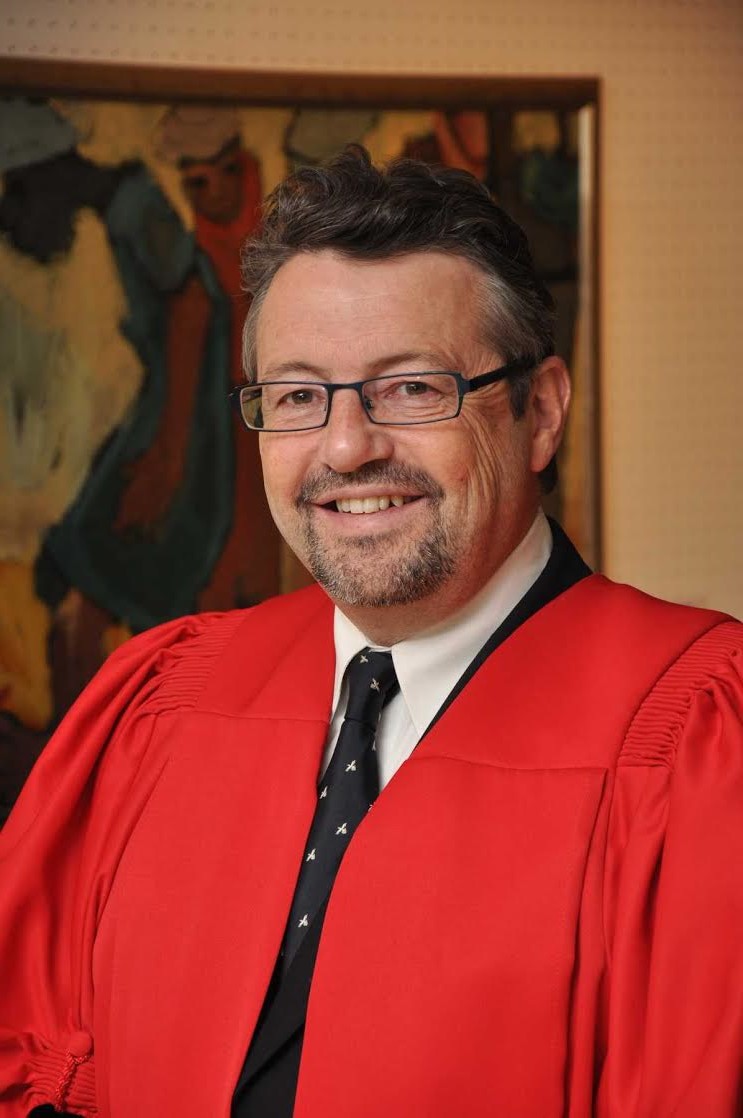
Iain T. Benson, BA (Hons.), MA (Cantab.), JD, PhD, was born in Edinburgh Scotland, raised in Canada, and lives in France. He was called to the bars of B.C. and Ontario. He is Professor Extraordinary, University of the Free State, Bloemfontein, South Africa (2009, ongoing); Visiting Professor (Comparative Constitutional Law) Faculty of Law, University of Western Ontario, Canada (2014); Research Fellow, South African Institute for Advanced Constitutional, Human Rights, Public and International Law (2008, ongoing); Senior Research Fellow, Chester Ronning Centre for the Study of Religion and Public Life, University of Alberta (2010, ongoing); Member of the Board and Executive Committee of the Global Centre for Pluralism, Ottawa, Canada (2010, ongoing); retained by the Federal Government of Canada for Policy Research Initiative on "Religion and Public Policy" (Jan 2008); one of the drafters of the South African Charter of Religious Rights and Freedoms (2010); Special Rapporteur on Law and Religion in Canada and South Africa to the Pontifical Academy of the Social Sciences, Vatican City (2012). He has published many academic articles and book chapters; his work has been cited by both the Supreme Court of Canada and the Constitutional Court of South Africa. He is the author of Living Together with Disagreement: Pluralism, the Secular and the Fair Treatment of Beliefs by Law (Connor Court Publishing, Australia in 2012). His PhD thesis "An Associational Framework for the Reconciliation of Competing Rights Claims Involving the Freedom of Religion" was published by Wits, 2013.

Ashraf Booley is currently a lecturer at the University of the Western Cape, in the Department of Public Law and Jurisprudence. He submitted his doctoral thesis at the end of March 2014, and is awaiting feedback from his examiners. The title of Booley's doctoral thesis is "Women’s Rights and Freedoms in Islamic Jurisprudence Pertaining to Marriage and Divorce: Lessons for South Africa from Morocco and Tunisia." He is currently working on "Islam’s Position on Polygyny: Can South Africa Learn from Other African Jurisdictions?"
George William Byarugaba is a Catholic priest that was born in Uganda. His primary, secondary, and undergraduate studies were done in Uganda. He obtained his undergraduate degrees in Philosophy and Divinity from Urbanian and Makerere Universities respectively. In 1996, he moved to Kokstad diocese–South Africa, to work as Fidei Donum priest. In 2004, George got a Master’s degree in Philosophy, specialized in Education Leadership and Management from St. Augustine’s College of South Africa. From 2007-2012, he was studying at Santa Clara University-California where he obtained a Licentiate and Doctorate in Christian ethics. Presently, George is tutoring ethics at the University of the Western Cape.
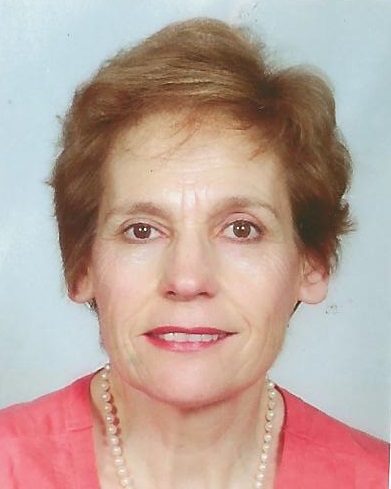
Karin Calitz is an Associate Professor, teaching Labour Law at the Stellenbosch University. She has published on various themes in the labour law field, inter alia the legal position of vulnerable groups such as farm workers, domestic workers, child workers and victims of sexual harassment.
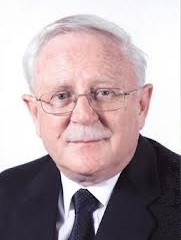
Prof. Pieter Coertzen was born on 20 April 1943 in Boksburg, South Africa. He obtained seven degrees: BA (1963), BA Hons (1964) and MA in Philosophy (1970) - all cum laude at the former Pothefstroom University for Christian Higher Education (currently North West University). Meanwhile, he also obtained his Bachelor of Theology (1967), Licentiate in Theology (1968) and Master of Theology in Ecclesiology (1969) - all three cum laude at the University of Stellenbosch. He obtained his doctors degree in Theology (Ecclesiology) in 1976 also at the University of Stellenbosch. At the same time (November 1970 to September 1974) he was the parish minister of the Dutch Reformed Church in Dundee, Natal and from October 1974 until the end of 1976 he was student minister at the Dutch Reformed Church Potchefstroom-North. He was called as Senior Lecturer in Ecclesiology at the Faculty of Theology (University of Stellenbosch) in 1977. In 1988 he became professor and from 1995 to 1997, he was the Dean of the Faculty. During this time the Dutch Reformed Church Franschhoek also called him as associated minister.. Here he served (since 3 September 1995 until 20 April 2008) with Rev. Willie van Zyl, Dr. Johan Spies, Rev. Chris Crause and Rev. Bossie Minnaar. From 1991 to 1999 he was actuarius (Church Law Advisor) of the Dutch Reformed Church in South Africa (Western and Southern Cape) and from 1994 to 2004 the actuarius of the General Synod of the Dutch Reformed Church. Since the early eighties he also served in the the Church Law Committees of the Synod of the Dutch Reformed Church in South Africa (Western and Southern Cape) and of the General Synod. Professor Coertzen retired in April 2004 as a lecturer at the Faculty of Theology, but he was immediately appointed as Extraordinary Professor in Comparative Church Law at the Catholic University of Louvain and at the Faculty of Theology of the University of Stellenbosch. He was (and is) very active as scholar and theologian. The NGTT (of which he has been the editor for years) published 36 of his articles. He has written 14 books and is also co-author or editor of 26 publications. He also wrote numerous articles in other journals, bulletins and journals. His two main book publications are Die Hugenote van Suid-Afrika 1688 – 1988 and Ordelik en Gepas. ‘n Teologiese verantwoording van die Orde vir en in die Kerk. Both works are translated in English. Although he formally retired as teacher, it is definitely not a quiet time for him. In addition to his teaching duties at Stellenbosch and Leuven he was chairman of the Huguenot Memorial Museum in Franschhoek, where major expansions are planned. He was also the Chairman of the organizing committee for the Seminary's 150-year celebrations in 2009 and the editor of the festschrift over the Seminary. He is also the chairman of a committee that that is preparing a Charter of Religious Rights for South Africa for possible adoption by the Parliament. In addition, he continues his research on Religious Freedom and the relationship between Church and State in the light of the Constitution.
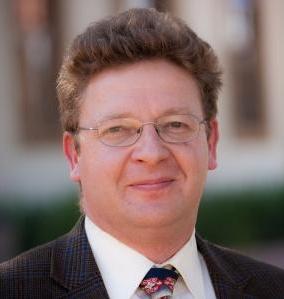
Shaun de Freitas is an Associate Professor in the Department of Constitutional Law and Philosophy of Law at the University of the Free State, South Africa. Professor de Freitas lectures in Public International Law, Constitutional Law as well as Philosophy of Law, with special areas of interest in Constitutional Theory and History as well as the relationship between Law and Religion. He has published in various scholarly journals and is a co-editor of the Journal for Juridical Science; and the International Journal for Religious Freedom.
Magriet de Villiers is currently a PhD candidate and academic assistant in the department Systematic Theology and Ecclesiology at the Faculty of Theology, Stellenbosch University. Her research, entitled Selbstdenker: Engaging Theologically with Hannah Arendt on Thinking and Judging, focuses on the social thinker and political philosopher Hannah Arendt.
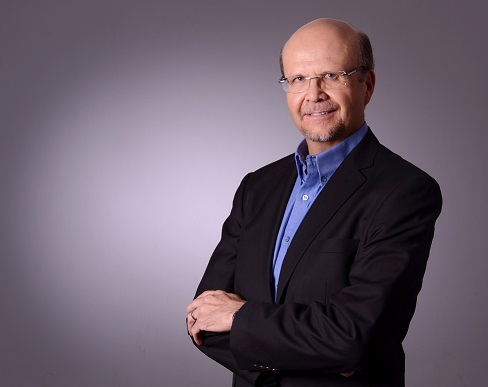
Jaco S. Dreyer is professor of practical theology at the University of South Africa in Pretoria, South Africa. His research interests include the development of a public practical theology and the methodology of practical theology. He is a NRF B rated researcher and is the current president of the International Academy of Practical Theology. His publications include Is there a God of human rights? The complex relationship between human rights and religion: A South African case (with JA van der Ven and HJC Pieterse), Divine Justice - Human Justice (edited with JA van der Ven) and about 50 articles in academic books and journals.
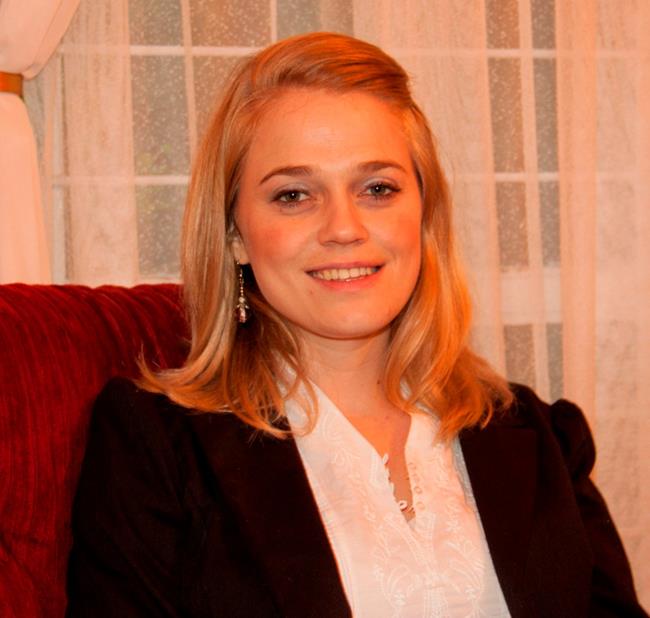
Mrs. Georgia du Plessis is currently a lecturer at the University of the Free State and teaching Interpretation of Statutes and Administrative law. She obtained her LL.B and LL.M degrees (cum laude) at the University of the Free State and is currently busy with her PhD studies (in religious rights and freedoms in education) at the University of Antwerp, Belgium. She is a member of the South African Education Law Association and has recently been selected to attend the US Embassy Institute in Religious Rights and Freedoms at the University of California. Mrs. Du Plessis has published several articles both nationally and internationally and presented several papers at national and international conferences.
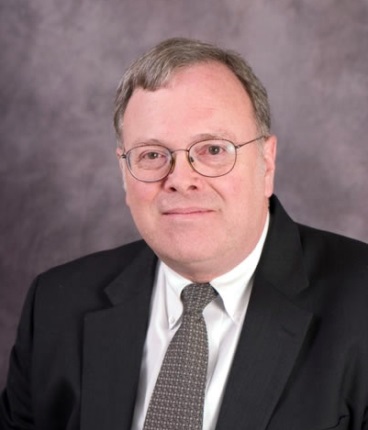
W. Cole Durham, Jr., is Director of the International Center for Law and Religion Studies, a position he has held since the Center was officially organized on January 1, 2000. A graduate of Harvard College and Harvard Law School, where he was a Note Editor of the Harvard Law Review and Managing Editor of the Harvard International Law Journal, Professor Cole Durham has been heavily involved in comparative law scholarship, with a special emphasis on comparative constitutional law. He is currently the President of the International Consortium for Law and Religion Studies (ICLARS), based in Milan, Italy, and a Co-Editor-in-Chief of the Oxford Journal of Law and Religion. From 1989 to 1994, he served as the Secretary of the American Society of Comparative Law, and he is also an Associate Member of the International Academy of Comparative Law in Paris—the premier academic organization at the global level in comparative law. He is serving as a General Rapporteur for the topic "Religion and the Secular State" at the 18th International Congress of Comparative Law held in July 2010. He has also served in earlier years as Chair both of the Comparative Law Section and the Law and Religion Section of the American Association of Law Schools. Professor Durham has taught at the Brigham Young University Law School since 1976, and he was awarded the honorary designation of University Professor there in the fall of 1999. Since 1994, he has also been a Recurring Visiting Professor of Law at Central European University in Budapest, where he teaches comparative constitutional law to students from throughout Eastern Europe, and increasingly from Asia and Africa as well. He has also been a guest professor in Gutenberg University in Mainz, Germany and at the University of Vienna. In January, 2009, he was awarded the International First Freedom Award by the First Freedom Center in Richmond, Virginia. Professor Durham has been involved in constitutional drafting projects in Nepal (2011 and 2009), Thailand (2007), and Iraq (2005-06). He has worked on constitutional and statutory drafting projects throughout Eastern Europe and in most former Soviet bloc countries. He has been particularly active in matters involving relations between religion and the state, though he also has extensive experience with comparative criminal law and non-profit law. He served for a number of years as a member of the OSCE/ODIHR’s Advisory Council on Freedom of Religion or Belief, and he is a Vice President of the International Academy for Freedom of Religion and Belief. He serves as a board member of church-state centers at DePaul and Baylor Universities, of the International Religious Liberty Association, and of the International Advisory Board of the Oslo Coalition on Freedom of Religion or Belief. He has also been active in work on laws governing the civil society sector, having served as Chairman of the Board of the International Center for Not-for-Profit Law in Washington, D.C. (and as a member of its board for many years). Professor Durham’s involvement in these organizations has enabled him to play an active role in advising governments throughout much of the former socialist bloc on constitutional provisions and legislation dealing with criminal law and procedure, court structure, general constitutional issues, and the law of associations, including particularly religious associations. He has helped organize technical assistance to law reform projects and comparative law conferences in countries around the world. This has included consultations on constitutional issues and laws in Albania, Argentina, Armenia, Azerbaijan, Bosnia and Herzegovina, Bulgaria, Chile, China, Croatia, the Czech Republic, Dominican Republic, Estonia, France, Georgia, Hungary, Indonesia, Iraq, Kazakhstan, Kyrgyzstan, Latvia, Lithuania, Macedonia, Moldova, Mexico, Nepal, Nigeria, Peru, Romania, Russia, Rwanda, Samoa, Serbia, Slovakia, Slovenia, Tajikistan, Thailand, Ukraine, and Vietnam. In the U.S., Professor Durham has organized a series of conferences on comparative law issues at Brigham Young University and at other institutions in the United States which have brought some 800 scholars and experts dealing with comparative constitutional law themes from more than 100 countries to the United States. He is a co-author with Brett Scharffs of Religion and the Law: National, International and Comparative Perspectives (Aspen/Wolters Kluwer 2010), and with William Bassett and Robert Smith of Religious Organizations of the Law, an annually updated treatise published by Thompson Reuters/West. He is the editor (with Noel Reynolds) of Religious Liberty in Western Thought, and (with Silvio Ferrari) Law and Religion in Post-Communist Europe. He is also a co-editor of Facilitating Freedom of Religion or Belief: A Deskbook, which was published in 2004 by Brill under the Martinus Nijhoff imprint, and also of Religious Organizations in the United States, published in 2006 by Carolina Academic Press. He has authored numerous law review articles dealing with religious liberty and other comparative law themes. Professor Durham has testified before the U.S. Congress in hearings on religious intolerance in Europe and on the Religious Liberty Protection Act. In 2010 he testified via teleconference before the Indonesia Constitutional Court concerning the constitutionality of the Indonesian blasphemy law.
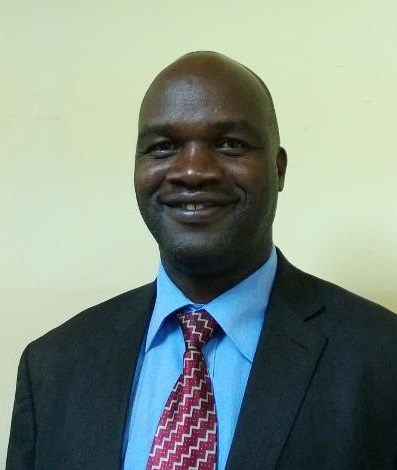
Rev. Luka Ariko Ekitala, was born in Turkana County on October 18th 1968. He has been an ordained Minister of the Reformed Church of East Africa since 1998. He worked in the Parish for three years before he joined the Reformed Institute for Theological Training as a lecturer and later Principal, a position he held of five years. He taught Church History and Church polity.He is currently The University Chaplain, Moi University in Eldoret. He holds B. Arts (Egerton University), B. Divinity (St. Paul’s, Univeristy-Limiru), PGD in Theology, and M. Th (Stellenbosch University). He is enrolled in the faculty of Theology for a Doctoral Degree program.
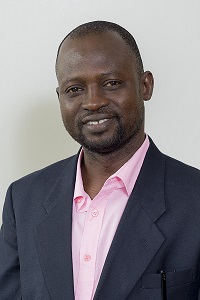
Ahmed Salisu Garbawas born and brought up in the Jos North local government area of Plateau State in Northern Nigeria. He did his Primary and Secondary Schools in Jos and completed in 1992. He attended the University of Jos, Faculty of Law for his First and Second Degrees and graduated in 2004 and 2011 respectively. Garba was also called to the Nigerian Bar in 2005 and has been practicing law since then. He now teaches law at the Bauchi State University, Gadau in Nigeria. He is also a PhD candidate at the Faculty of Law, Bayero University Kano Nigeria and was a Visiting Scholar in the College of Law of the University of Iowa in the United States from August 2013 - December 2013.
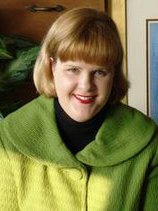
M. Christian Green is a scholar, teacher, researcher, and writer working in the fields of law, religion, ethics, human rights, and world affairs. She holds degrees from Georgetown University in history and government, Emory University in law and theology, and the University of Chicago in religion and ethics. She has taught at DePaul University, Harvard Divinity School, and the Candler School of Theology. She has been a researcher at the Religion, Culture, and Family Project at the University of Chicago, the Park Ridge Center for the Study of Health, Faith, and Ethics in Chicago, and the Center for the Study of Law and Religion at Emory University. Her research interests include law and religion, human rights, feminism and the family, bioethics, and religion and international affairs. She is currently religion book review editor for the Journal of Law and Religion and editor of the blog and resource page “Sharia, Family, and Democracy in Nigeria and Beyond.” During the 2010-2011 academic year, she was a visiting research fellow at the Kroc Institute for International Peace Studies at the University of Notre Dame, conducting research on “Religion, Rights, and Recognition of Identity.”
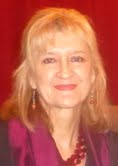
Rosalind I. J. Hackett is Professor and Head of Religious Studies, and adjunct in Anthropology, at the University of Tennessee, Knoxville, USA. From 2003-08 she was a Distinguished Professor in the Humanities. She received her PhD in Religious Studies from the University of Aberdeen, Scotland in 1986, and prior to that taught at Nigerian universities for eight years. In 2000-01 she spent a year at Harvard University as Liberal Arts Fellow in Law and Religion, Harvard Law School and Senior Fellow, Center for the Study of World Religions. She was a Rockefeller Research Fellow at the Kroc Institute of International Peace Studies at the University of Notre Dame in 2003-04. She was appointed a Mellon Fellow at the University of Cape Town in Religious Studies in May 2014.
Hackett has published widely on religion in Africa, notably on new religious movements, religious media, gender and religion, regulation of religious diversity, and religion and conflict. Among her earlier works are New Religious Movements in Nigeria (1987, ed.), Religion in Calabar: the Religious Life and History of a Nigerian Town (1989) and Art and Religion in Africa (1996). Recent publications include: Proselytization Revisited: Rights Talk, Free Markets, and Culture Wars (Equinox 2008, ed.) and Displacing the State: Religion and Conflict in Neoliberal Africa, (University of Notre Dame Press, co-edited with James H. Smith, 2012). The Anthropology of Global Pentecostalism and Evangelicalism (co-edited with Simon Coleman, New York University Press, 2015) and New Media and Religious Transformations in Africa (co-edited with Benjamin Soares, 2015) are forthcoming. Her current research is on sound in/as religion.
In terms of professional service, Professor Hackett has been very active in the International Association for the History of Religions (IAHR) and was re-elected President from 2010-15). She is the co-founder of the IAHR Women Scholars Network. She was a founding member of the African Association for the Study of Religions (AASR) and has also served as President of the North American Association for the Study of Religions (NAASR). She is part of the founding steering committee of the African Consortium on Law and Religion Studies (ACLARS), founder/coordinator of the Jazz for Justice Project and the UT Gulu Study and Service Abroad Program (GSSAP) in northern Uganda.
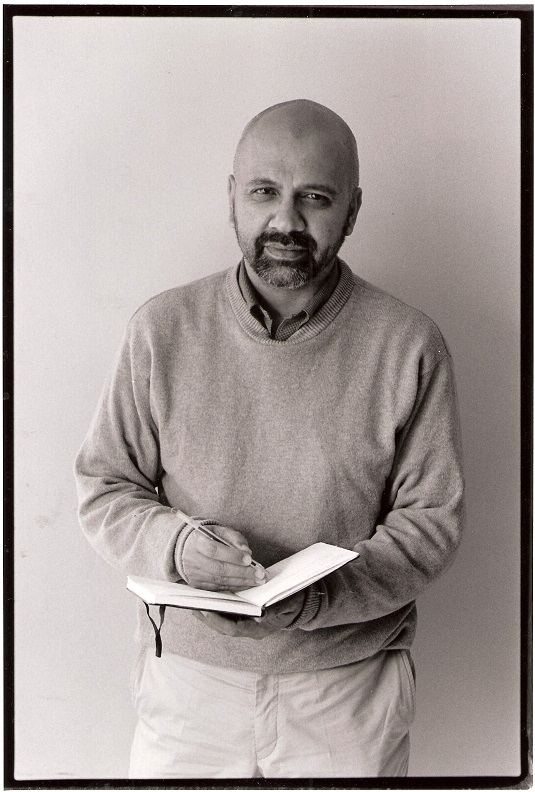
Muhammed Haron is a South African based in the Department of Theology & Religious Studies at the University of Botswana where he teaches Religious Studies courses as an associate professor. He is also an associate researcher in the ‘Study of Islam’ program at the University of Johannesburg (UJ) as well as an executive member of the Centre for Contemporary Islam at the University of Cape Town (UCT). He authored The Dynamics of Christian-Muslim Relations (2006), edited Going Forward: South African-Malaysia Relations (2008), compiled/edited South Africa’s Muslims: Annotated Bibliography (1997) and South Africa’s Truth and Reconciliation Commission: An Annotated Bibliography (2009), co-authored First Steps in Arabic Grammar (2007) and Second Steps in Arabic Grammar (2009) and co-edited Islamic Civlization in Southern Africa (2009). He edited a special issue on ‘Arabo-Islamic Manuscripts [in Africa]’ for Tydksrif vir Letterkunde (University of Pretoria 2008), and a special issue on ‘Muslims in Southern Africa’ for BOLESWA: Journal of Theology, Religion and Philosophy (University of Botswana 4:1, 2012)
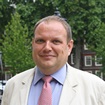
Mark Hill QC is a leading barrister with Chambers in London and specializes in litigation concerning religious matters in the domestic courts in the United Kingdom and at the European Court of Human Rights in Strasbourg: major cases include Eweida v. UK, The Church of Jesus Christ of Latter-day Saints v. UK (ECtHR), and Preston v. President of Methodist Church Conference (UK Supreme Court). He is an Honorary Professor at the Centre for Law and Religion, Cardiff University, Extraordinary Professor at the University of Pretoria, and Ecumenical Fellow in Canon Law at the Venerable English College in Rome. He sits as a judge in secular courts and those of the Church of England, including the judicial office of Chancellor of Europe. He was President of the European Consortium for Church and State Research in 2012. He is Convenor of the United Kingdom Interfaith Legal Advisors Network and Consultant Editor of the Ecclesiastical Law Journal. He is a member of the Editorial Boards of the Oxford Journal for Law and Religion and the Revista General de Derecho Canónico y Derecho Eclesiástico del Estado. His publications include Ecclesiastical Law (3rd ed., 2007); English Canon Law (1998); Religious Liberty and Human Rights (2002); Jowitt’s Dictionary of English Law (2010); Religion and Law in the United Kingdom (2011); and Religion and Discrimination Law in the European Union (2012). He is editing a major work, Magna Carta, Religion and the Rule of Law, to be published by Cambridge University Press in 2015 to mark its 800th anniversary.
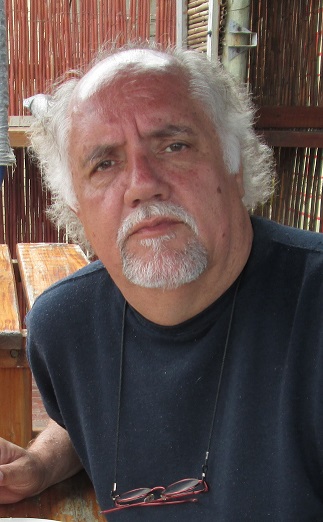
Nico Horn is an Associate Professor of Law at the University of Namibia. He teaches Philosophy of Law and Constitutional Law and has also taught Human Rights Law, Public International Law and Criminal Procedure. He was Dean of the Faculty of Law from January 2008 until May 2010. Before that he was the Director of the Unman Rights and Documentation Centre at UNAM for six years. Before joining UNAM he was a state advocate prosecuting in the High Court of Namibia. Nico has published extensively on the Namibian Constitution. He is a trustee of the Namibia Law Journal Trust and the SADC Law Journal Trust and editor-in-chief of the Namibian Law Journal since its inception in 2009. He is a trained theologian and was a senior lecturer in the Faculty of Theology at the University of the Western Cape in the 1980’s. He has written extensively on the South African Pentecostal movement and its relationship with the political movements of the day.
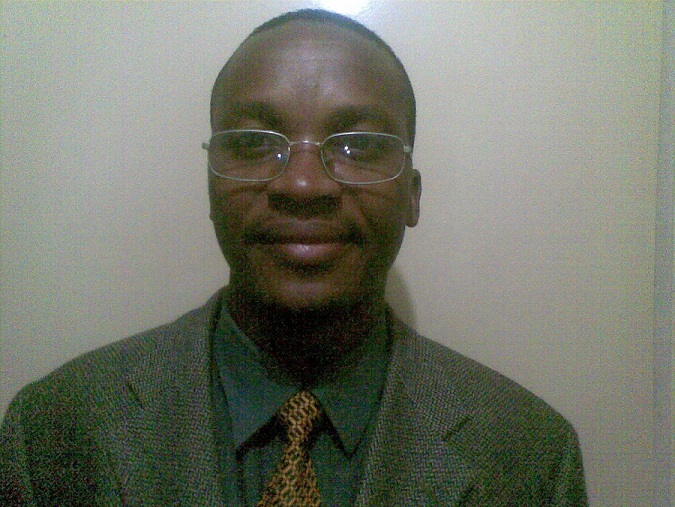
Kizito Kabengele is a research associate and a PhD Candidate in the Department of Public Law at the University of Pretoria, South Africa. He has bachelor and masters law degree. He specializes in the area of Business and human rights with interest on corporate social responsibilities of extractive industries. His research focuses on the interplay between transnational corporations, the social dimension of regulations and law reform. He has published a book on elections in South Africa and has written academic law articles. He is also NGOs Deputy-Chairperson for Moshate and Vice-President at Faecas.
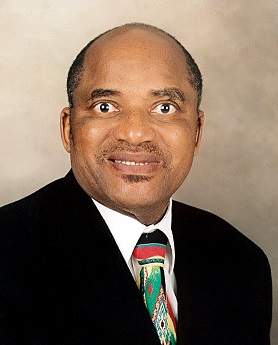
Attorney of the Supreme Court of South Africa, 1959 – 1974
Advocate of the Supreme Court of South Africa, 1975 to date
Founding Head – Department of Customary Law, University of Transkei, 1981
Head, Department of criminal and Procedural Law, University of Transkei, 1988 – 1998
Presiding Member of the Industrial Court of South Africa (part time), 1995 – 1998
Dean, Faculty of Law, University of Tanskei / Walter Sisulu University, 1984 - 2004 intermittently
Law Lecturer - Professor - Unitra / Walter Sisulu University, Mthatha, 1980 – 2006
Law Lecturer - Professor - Fort Hare University, East London Campus, 2007 – 2009
Practising Advocate, Bisho High Court and East London Circuit Division, 2010 & 2011
Visiting Professor of Rhodes University, Grahamstown, South Africa, Nov 2012 - date
Adjunct Law Professor of Fort Hare University, South Africa, Nov 2012 - date
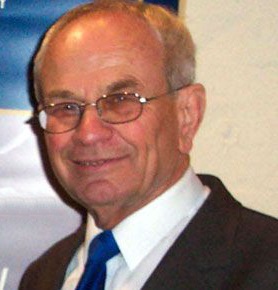
Asher Maoz is the Founding Dean of the Peres Academic Center Law School. He was, for many years, on the Faculty of Law at Tel-Aviv University, where he taught Constitutional Law, State and Religion, Freedom of Speech, Family Law, and Succession Law. Professor Maoz holds the degrees LLB and LLM, both summa cum laude (Hebrew University), M Comp L (University of Chicago), JSD (Tel-Aviv University) and Doctor Honoris Causa (Ovidius University, Romania). He is the founding Editor-in-Chief of Law, Society and Culture; a former editor of the Tel-Aviv University Law Review; a member of the Scientific Board, Review Dionysina; a member of the Academic Council of The International Academy for Jewish Leadership; and a member of the Academic Council, Shalem College, Jerusalem. Maoz was Chair of the Law Commission for Journalists’ Privileges; served as academic advisor to the Knesset Constitution, Law and Justice Committee on adopting a constitution for the State of Israel; and serves with many other organizations. He has taught at several universities in the United States, Europe, and Australia, and is the author of numerous publications on the intersections of law and religion. He is a member of the Steering Committee of the International Consortium for Law and Religion Studies (ICLARS).
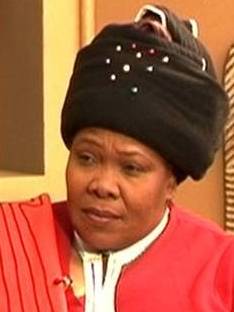
Nokuzola Mndende holds a PhD in Religious Studies from the University of Cape Town. National Chairperson of African Traditional Religion. Director of Icamagu Institute and Deputy Chairperson of the Commission on Traditional Leadership Disputes and claims. Advisor on cultural issues in the Commission on Gender Equality. Freelance presenter of African Religion at Umhlobo Wenene fm which is the second biggest station of the South African Broadcasting Panel. Has presented papers on African Traditional Religion nationally and internationally and has published widely on issues related to the indigenous religion of South Africa. A consultant on all issues relating to African Culture, Spirituality and Indigenous Knowledge Systems.
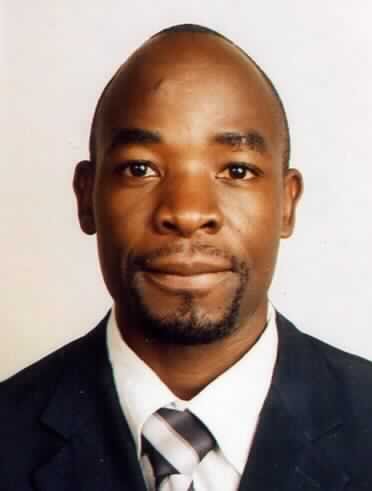
Diploma in Law (University of Zambia)<br > Diploma in Theology
Bachelor of Theology(Justo Mwale Theological University college)
Masters in Theology(Protestant Theological University, Netherlands)
Currently pursuing PHD with University of Pretoria
1. Published article on Church unity in Zambia ‘why we need to work together’ with Insideout 2010 magazine CWM, London.
2. Published article Compassion can make the world a better place for all with International student chaplaincy 2010, Netherlands, Annual report, p 27- 28.
3. Unpublished Master thesis on ‘’Contextualisation of Church Polity: A Case Study for Church Discipline’’, Kampan, Netherlands.
4. Published article in titled ‘’Justice begins at home’’ with Insideout magazine 2010 CWM, London.
5. Published article: Towards the reconstruction of church polity in Zambia: Case study in a book by Leo J. Koffeman and Johannes Smit(eds), Protestant church Polity in a changing context II, case studies international Conference, Utrecht, Netherlands, 7th – 10th November, 2011.
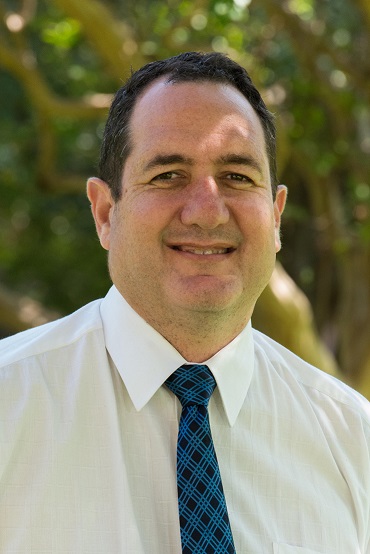
Daniel Francois Muller was born in 1968 in Stellenbosch and raised in Pretoria and Port Elizabeth. He completed his tertiary studies at the PUK before becoming a minster in the Reformed Churches of respectively Komatipoort, Uitschot and Buffeldoorns (Fochville). During this time he not only completed a M.Th. and a Ph.D. (both concerning the Belgic Confession) but also taught theology part time. During 2012 he was called to teach Church and Dogma History full time at the Potchefstroom Theological School and was simultaneously appointed at the North West University. He is married to Desiree and has two children.
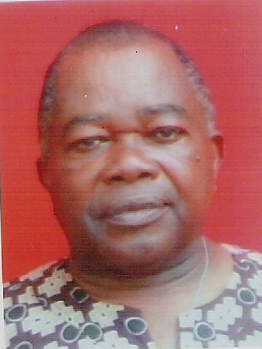
Professor Allswell Osini Muzan is currently the Director of the Peace and Conflict Resolution Program at the Royal Aspen Institute in Port Harcourt, Nigeria. He also a Professor of Law at Kogi State University in Anyigba, Nigeria. Professor Muzan received his LLM from Columbia University, a JD from Northern Illinois University Law School. Professor Muzan was Dean of Law at Kogi State University, Anyigba, Nigeria; and Dean of Law at Rivers State University in Port Harcourt, Nigeria.
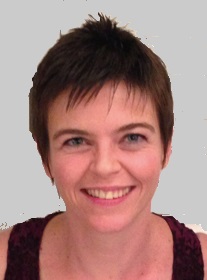
Mary Nel is a senior lecturer in Public Law at Stellenbosch University, where she lectures Criminal Law. After obtaining a BA (law), LLB (cum laude) and LLM (cum laude) at Stellenbosch University, she studied at Cambridge University, where she was awarded the Manuel Lopez-Rey Graduate Prize for highest marks obtained in M.Phil. in Criminology. She is currently completing an LLD entitled “Crime as punishment: A legal perspective on vigilantism in South Africa”. Her research interests include the issue of whether criminal law should be utilised to enforce “mere” morality, and the legitimacy of citizens resorting to violent self-help to enforce their interests.
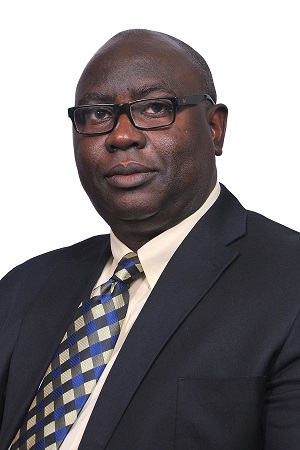
Enyinna Nwauche is an Associate Professor of Law at the University of Botswana. His current research interest includes Constitutional Law in Africa and Law and religion in Africa. He has published numerous peer-reviewed journal articles and a dozen chapters in local and international peer-reviewed journals. He is a member of the Executive Committee of the African Network of Constitutional Lawyers and the Executive Committee of the International Association of Constitutional Law.
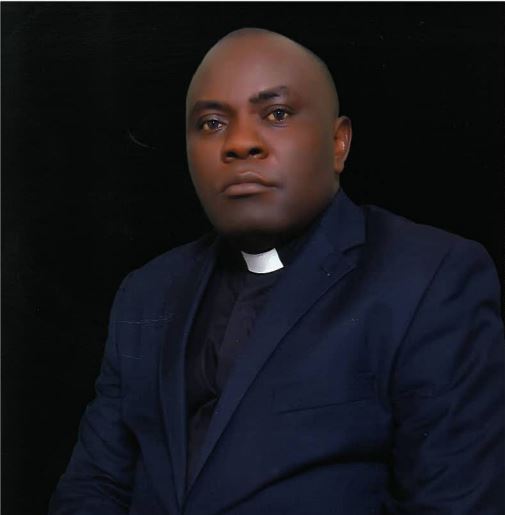
The Rev. Canon Stanley N. Nweze was born in 1971 in Nigeria. He obtained a Diploma in Theology from St. Paul’s College, Awka. He also bagged Bachelor of Arts (B. A. Religion with First Class Honours) and Master of Arts (M.A Religion) from University of Nigeria, Nsukka (UNN) and Post Graduate Diploma in Education (PGDE from Nnamdi Azikiwe University, Awka with). He is currently running his Ph. D programme in UNN. He was a lecturer in St. Paul’s College, Awka, in the Department of Religion and Theology and Vice-Principal (Academics) in the Good Shepherd Anglican Seminary, Enugu. Presently, he is a lecturer in the University of Nigeria, Nsukka and a priest in the Diocese of Enugu (Anglican Communion). He is married to Ukamaka with 4 children.
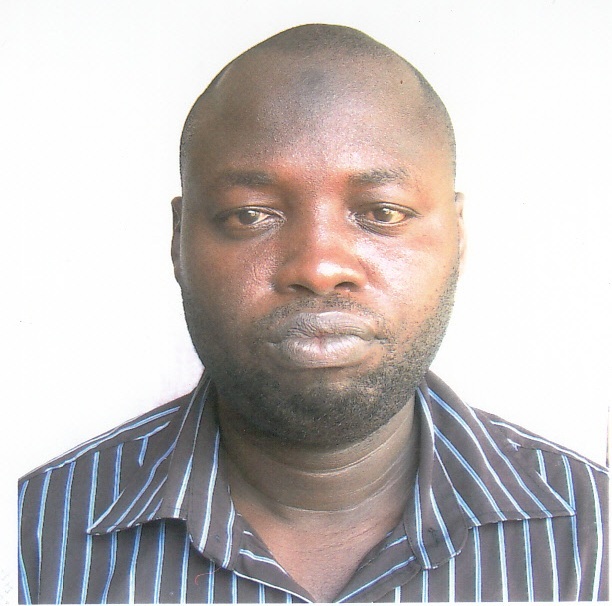
Abiodun Akeem Oladiti is a Senior Lecturer in the Department of General Studies, Ladoke Akintola University of Technology, Ogbomoso, Oyo State, Nigeria. He holds a Ph.D in African Studies with specialization in African History of the University of Ibadan. His areas of interest cover the field of Social and Cultural History in Nigeria. He has contributed essays to edited books and published articles in journals on topics relating to Social and Cultural History on Islam and Yoruba Culture. He is a member of the Association for the Study of Religion in Africa, The Netherlands.
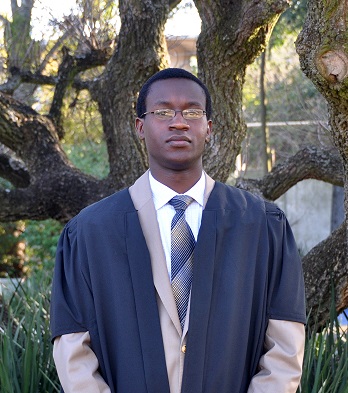
John Paul Ongeso is from Nairobi, Kenya. He obtained his LLM in International Law in 2012 and his LLB with distinction from Wits University in 2011. He is currently pursuing his PhD in International Criminal Law at the same university. John Paul works as a Senior Research & Teaching Associate and has taught Customary law and Public International law as a Sessional Lecturer at Wits Law School. He also runs a university residence which aims at promoting academic and professional excellence among its students. John Paul enjoys the outdoors and playing basketball.
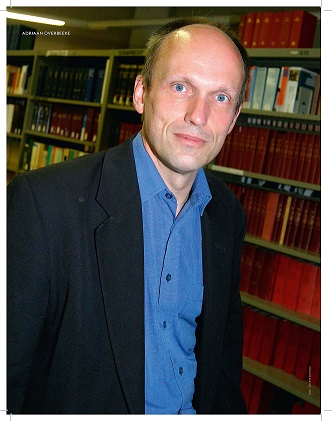
Adriaan Overbeeke, Lic. Political Sciences KULeuven (1983), PhD Law U Antwerp (2005), is Assistant Professor Constitutional law / senior researcher at the Faculty of Law, Free University Amsterdam (VU), participating in the research-group Fundamental Rights, Regulation & Responsible Government (Kooijmans Institute (VU)). He is a part-time researcher U Antwerp, Faculty of Law, involved in a research-program on religion, life stances and law. His research topics are law relating to church-state issues, education law, and human rights. He is a member of the board of: Institute of Jewish Studies (UAntwerp); Centre for Religion and Law (VU)); editorial board of Nederlands Tijdschrift voor Kerk en Recht (web publication) and Recht, Religie en Samenleving.
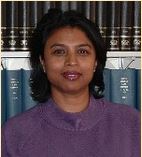
Devina Perumal is a Senior Lecturer in the School of Law at the University of Kwazulu-Natal, Durban, and an Advocate in the High Court of South Africa. Her research interests include issues in Constitutional Law, Feminist Legal theory, Anti-Discrimination Law, Multiculturalism and Equality Rights. She has published in these areas. She serves on the Board of the Kwazulu-Natal Network of Violence Against Women and Children, and is also a Board Member of Agenda Feminist Media. She has been appointed to the South African Law Reform Commission as a researcher on the Legal Recognition of Hindu Marriages Project.
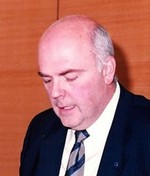
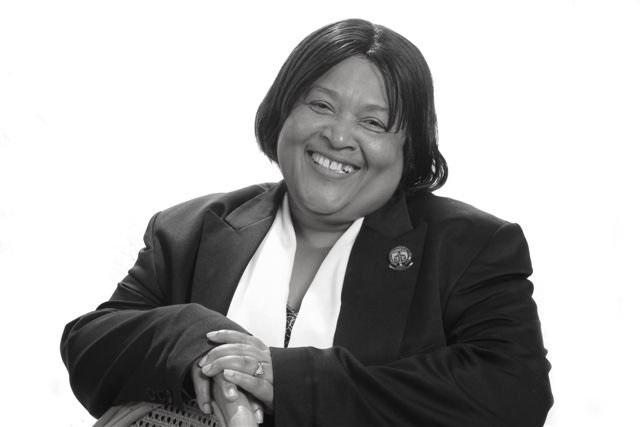
Dr. Mary Anne Plaatjies van Huffel is a Senior Lecturer in Ecclesiology at the University of Stellenbosch,where she teaches Church Polity and Church History. She currently serves as the Africa President of the World Council of Churchs and as the moderator of the Uniting Reformed Church in Southern Africa (URCSA). She holds two doctorates; one in Systematic Theology and one in Church Polity. Among Dr. M.A. Plaatjies’ major publications are the following: “About the empowerment of women in post-apartheid South Africa: A post-structural approach”; “Control, secede, vested rights and ecclesiastical property”; “The Institutionalization of Christian women’s organizations: from docile recipients to agents of change”; “Dirk Smith – An Apologist for confession”; “Patriarchy as empire: a theological reflection”; “The relevance of Reformed church polity principles: Revisiting the concept”.
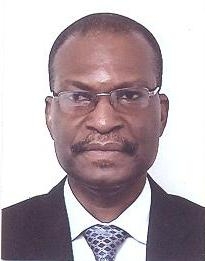
Prof. Kofi Quashigah is Dean of the Faculty of Law, University of Ghana. Before joining the University of Ghana he taught at the University of Nigeria Enugu Campus. He was a Fulbright Scholar at the Harvard Human Rights Program between 2001/2002 and a McArthur Foundation Visiting Scholar at the University of Wisconsin in 1992. His teaching and research interests include Constitutional Law, Human Rights, International Humanitarian Law, Jurisprudence, Governance, Elections Law and Alternative Dispute Resolution.
He is a member of the General Legal Council of Ghana and also on the Advisory Board of the Ministry of Justice. For several years he has been the President of the Ghana Association of Certified Mediators and Arbitrators.
Justice Albie Sachs, author, activist and retired judge on the Constitutional Court of South Africa. Justice Sachs’ career in human rights activism started at the age of seventeen, when as a second year law student at the University of Cape Town, he took part in the Defiance of Unjust Laws Campaign. Three years later he attended the Congress of the People at Kliptown where the Freedom Charter was adopted. He started practice as an advocate at the Cape Bar aged 21. The bulk of his work involved defending people charged under racist statutes and repressive security laws. Many faced a death sentence. He himself was raided by the security police, subjected to banning orders restricting his movement and eventually placed in solitary confinement without trial for two prolonged spells of detention.
In 1966 he went into exile. After spending eleven years studying and teaching law in England he worked for a further eleven years in Mozambique as a law professor and legal researcher. In 1988 he was blown up by a bomb placed in his car in Maputo by South African security agents, losing an arm and the sight of an eye.
During the 1980s - working closely with Oliver Tambo, leader of the ANC in exile - he helped draft the organisation’s Code of Conduct, as well as its statutes. After recovering from the bomb he devoted himself full-time to preparations for a new democratic Constitution for South Africa. In 1990 he returned home and as a member of the Constitutional Committee, and the National Executive of the ANC, took an active part in the negotiations which led to South Africa becoming a constitutional democracy. After the first democratic election in 1994 he was appointed by President Nelson Mandela to serve on the newly established Constitutional Court.
In addition to Sachs’ work on the Constitutional Court, he has travelled to many countries sharing South African experience in healing divided societies. He has also been engaged in the sphere of art and architecture, and played an active role in the development of the Constitutional Court building and its art collection on the site of the Old Fort Prison in Johannesburg.
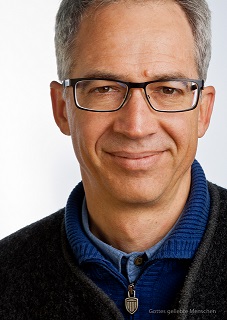
Dr. Christof Sauer has been a Professor of Religious Studies and Missiology at the Evangelical Theological Faculty in Leuven, Belgium since 2014. Simultaneously he is the Co-Director of the International Institute for Religious Freedom (Bonn – Cape Town – Colombo) and editor of the International Journal for Religious Freedom. He has been involved in the audit of methodology and outcomes of "World Watch List" on persecution of Christians. Sauer is currently an Associate Professor Extraordinary in Missiology at Stellenbosch University. He also supervises Doctoral students in the Department of Church History, Christian Spirituality and Missiology at the University of South Africa.
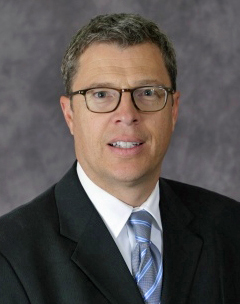
Brett G. Scharffs is Associate Dean for Research and Academic Affairs of Brigham Young University's J. Reuben Clark Law School, where he is Francis R. Kirkham Professor of Law and Associate Director of the International Center for Law and Religion Studies. His teaching and scholarly interests include comparative and international law and religion, jurisprudence and adjudication, and international business law. Professor Scharffs is a graduate of Georgetown University, where he received a BSBA in international business and an MA in philosophy. He was a Rhodes Scholar at Oxford University, where he earned a BPhil in philosophy. He received his JD from Yale Law School, where he was Senior Editor of the Yale Law Journal. Professor Scharffs was a law clerk on the U.S. Court of Appeals, D.C. Circuit, and worked as a legal assistant at the Iran-U.S. Claims Tribunal in The Hague. Before teaching at BYU, he worked as an attorney for the New York law firm, Sullivan & Cromwell. He has previously taught at Yale University and the George Washington University Law School, and is a visiting professor each year at Central European University in Budapest. In his 16-year academic career, Professor Scharffs has written more than 50 articles and book chapters, and has made over 150 scholarship presentations in 20 countries. His casebook, Law and Religion: National, International, and Comparative Perspectives, co-written with his colleague, W. Cole Durham, Jr., was published by Aspen / WoltersKluwer in 2010, second edition in preparation.
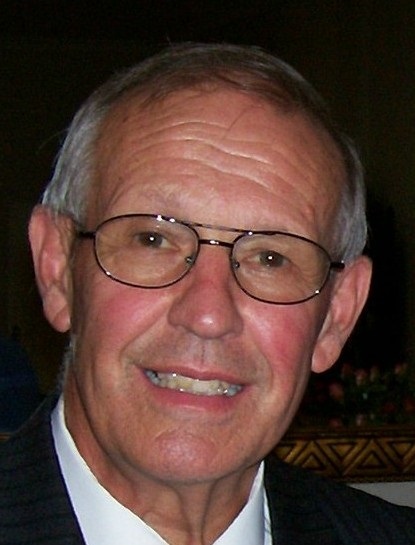
Adelbert Scholtz is a retired minister of the Nederduitse Gereformeerde Kerk and is presently working as a counselling psychologist in private practice. He studied theology at the Stellenbosch Theological School during the sixties and thereafter obtained a postgraduate qualification in Philosophy from the Imperial University of Leyden, Netherlands under CA van Peursen. He also completed a doctorate in the History of Christianity and a master’s degree in New Testament Studies at SU, as well as a PhD in Psychology at the Potchefstroom University. He lectures part-time at the University of the Western Cape and the University of the Free State in Practical Theology.
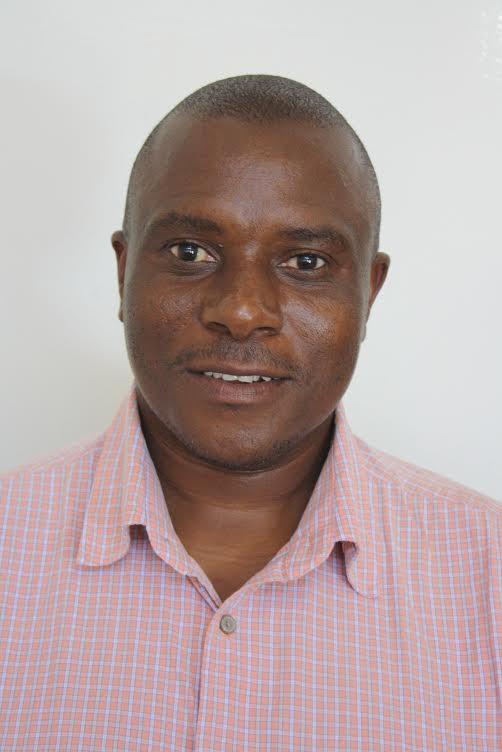
Fortune Sibanda is a lecturer in the Department of Philosophy & Religious Studies at Great Zimbabwe University. He is a PhD candidate at the University of Zimbabwe. His areas of interest include religion and human rights, Indigenous Ways of Knowing, and New Religious Movements such as Rastafari tackled from an Afrocentric standpoint. He has published widely in refereed journals and chapters in books. His publications include: "The Impact of Rastafari Ecological Ethic in Zimbabwe: A Contemporary Discourse," JPAS, 5(3), June 2012; and jointly, "Beyond the Third Chimurenga?: Theological Reflections on the Land Reform Programme in Zimbabwe," JPAS, 6(8), March 2014.
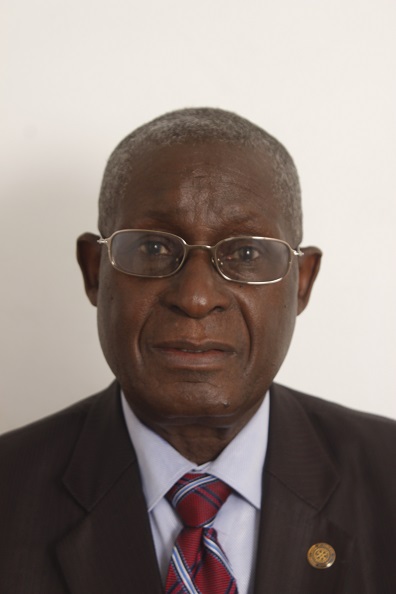
Justice Annel Silungwe has received a law degree from The Inner Temple, London, United Kingdom and a Master of Laws (LLM) from the University of Zambia. He has worked as a State Counsel, Minister of Justice, and as an Attorney General. He is Chairman of the Judicial Service Commission; Chief Justice, Zambia; Court of Appeal Judge, Seychelles; Judge, High Court/Supreme, Namibia; Director, Commonwealth Judicial Education Institute, Halifax, Canada; Legal Expert, UNESCO; Chairperson, Bible Society of Zambia; and was the past District Governor, Rotary International.
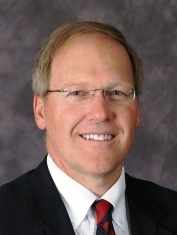
As Managing Director of the International Center for Law and Religion Studies, Robert Smith oversees activities including Center-sponsored conferences worldwide, the Annual International Law and Religion Symposium in Provo, academic publications, international law and religion initiatives, and law-reform consultations. Professor Smith is a co-author, with W. Cole Durham, Jr. and William Bassett, of the treatise Religious Organizations and the Law, published in annual updates by Thomson West. Professor Smith has also co-authored numerous articles on religious freedom and other legal topics, is a speaker at international conferences on religious topics, and teaches a course on the taxation of religious organizations at the J. Reuben Clark Law School. Before joining the law school, Professor Smith was Executive Vice-President and General Counsel to CaseData Corporation, a shareholder and chairman of the Corporate and Tax department at the law firm of Kirton & McConkie in Salt Lake City, member of law firms in Washington, D.C. and Chicago, Illinois, and a CPA for Deloitte & Touche. Professor Smith received a BS in accounting from BYU, an MBA magna cum laude from the University of Notre Dame, and a JD magna cum laude from the J. Reuben Clark Law School, where he was named to the Order of the Coif and served as Editor-in-Chief of the law review.
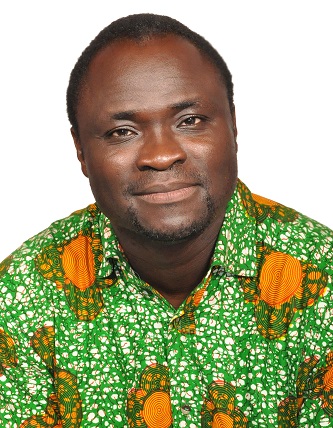
Jean-Baptiste Sourou, citizen of Benin Republic, is Professor of Communications at Saint Augustine University of Tanzania in Mwanza, and teaches Rituals and Communications at the Gregorian University in Rome, Italy. He is the founder and the president of the Center for Documentation and Research on Art and Social Sciences (CeDReS Project) in Benin Republic. He holds a BA, MA and PhD in Social Communications and Social Sciences from the Gregorian University. He has as well a BA and MA in Theology from Universities in Padua and Rome. He is an international media practitioner, and won prestigious awards in the field: The International Award of Solidarity with Refugees at the 2013 International Journalism and Media Awards, and the Award of the Best Writer/Author at the 2013 Africa-Italy Excellence Awards.
Professor Sourou's research interests center on rites, dance and music, and the relationship between media, culture and religion, especially in Africa. These researches earned him international honours. He works also on the African immigration through the Mediterranean Sea to Europe. He is publishing on African cultural, social and religious life. He is member of the International Society in Media, Religion and Culture, and Consultant for the Observatory of Media and Religion in Canada. He speaks French, English, Italian, Spanish, Fon and Mina, and knows Latin.
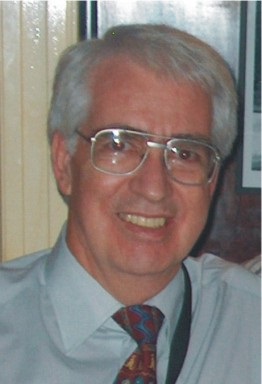
Danie Strauss was appointed as senior lecturer in Philosophy at the then University of the Free State in 1971, five years later promoted to associate professor and in October 1977 to professor and head of the Department of Philosophy. He served as the first Director of the Dooyeweerd Centre in Canada (1994-1997) where he initiated the publication of the Collected Works of Herman Dooyeweerd. From April 1998 to December 2001 he was Dean of the Faculty of Humanities at the UFS. Publications: independent 15; 40 international conference papers; 20 contributions to collected works; 280 articles (nationally and internationally). Recent books: Paradigmen in Mathematik, Physik und Biologie und ihre philosophische Wurzeln (2005) (Frankfurt am Main); Reintegrating Social Theory (2006) (Frankfurt am Main); and Philosophy: Discipline of the Disciplines (Paideia Press, Grand Rapids). In 2011 this book received the award for work in the fields of systematic philosophy for advancing the cause of the "Philosophy of the Cosmonomic Idea".
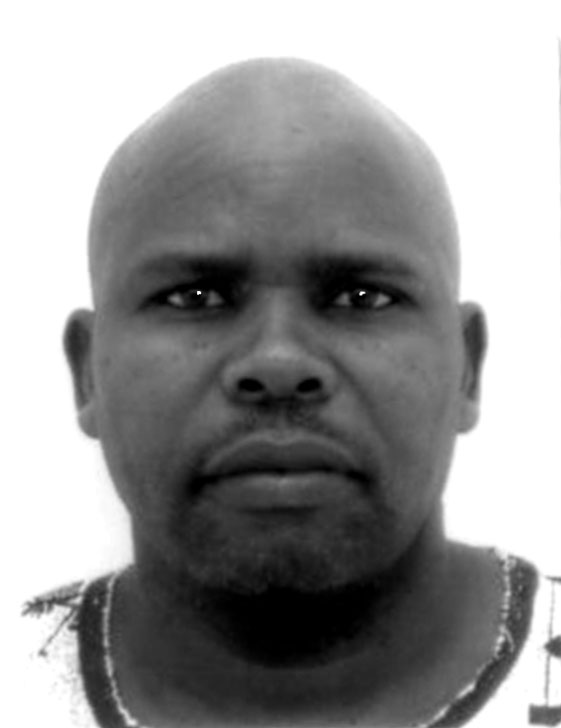
Nisbert Taisekwa Taringa (1964) holds a PhD in Religious Studies and is a Senior Lecturer and Head of the Department of Religious Studies, Classics and Philosophy, University of Zimbabwe. He is a Fulbright and DAAD Alumni and a member of the Bayreuth International Alumni Network. His areas of interests are is Phenomenology of Religion, World Religions, African Traditional religions and Systematic Theology. He has research interest in methods and theories in the study of religion and in religions and contemporary ethical issues such as the Environment, Human rights, Gender and Sexuality and Health and Well-being.
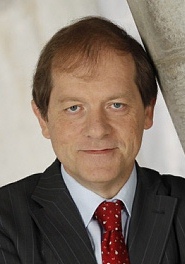
Since 1988 Rik Torfs has been a full professor at the Catholic University of Leuven (Belgium), where he was Dean of the Faculty of Canon Law from 1994-2003. Since 2000, he has been a visiting professor at both the University of Strasbourg (France) and the University of Stellenbosch (South Africa). The author of nearly 350 articles and numerous books dealing with canon law, law, and Church and State relationships, Professor Torfs is editor of the European Journal for Church and State Research, is a member of the Board of Directors of the European Consortium for State-Church Research, and is a newspaper columnist and host of his own television program. In 2009 he became a member of the Commission for Intercultural Dialogue (Assises de l'Interculturalité) of the Belgian government. On 13 June 2010 he was elected a member of the Belgian Senate.
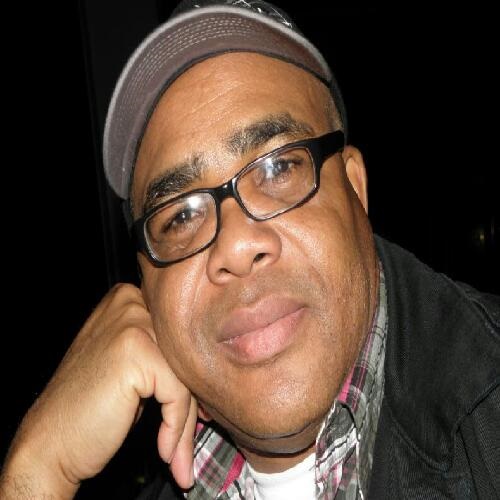
Asonzeh Ukah is a sociologist/historian of religion. He joined the University of Cape Town, South Africa, in 2013. He taught at the University of Bayreuth, Germany, from 2005 to 2013. He studied at the University of Ibadan, Nigeria, and the University of Bayreuth, Germany. In addition to numerous publications in peer-reviewed journals and contributions of book chapters, A New Paradigm of Pentecostal Power: A Study of the Redeemed Christian Church of God in Nigeria (Africa World Press 2008).
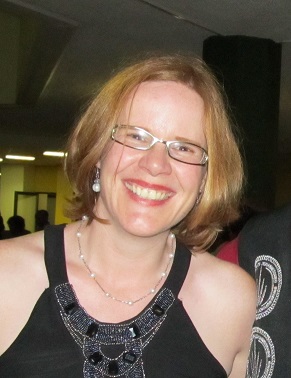
Helena van Coller is a Senior Lecturer at the Law Faculty of Rhodes University, South Africa. Her main field of research is Administrative Law. She joined the Faculty in July 2005. She obtained her LLB and LLM degrees from the University of the Free State and a LLM from the University of Utrecht, The Netherlands. She was admitted as an advocate in 2004. She submitted her LLD on the topic of Administrative Law and Religious Organisations in 2012. She is also member of ICLARS (The International Consortium for Law and Religious Studies).
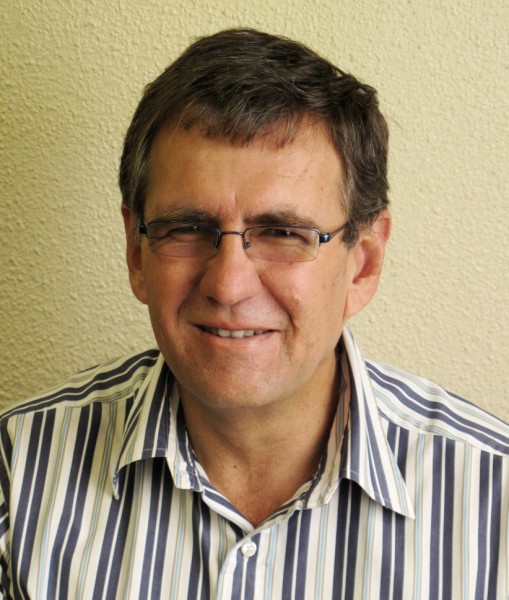
Johan van der Merwe is senior lecturer in Church History and Church Polity in the Department of Church History and Church Polity of the Faculty of Theology, University of Pretoria. He was appointed in 2008. He specializes firstly in South African church history of the 20th century with specific focus on the church’s struggle against poverty and the injustice of apartheid. In the field of church polity, he focuses on the challenges to church polity in the local church. He is also actuary of the Eastern synod of the Dutch Reformed Church. Johan has published numerous articles in accredited journals as well as several book chapters.
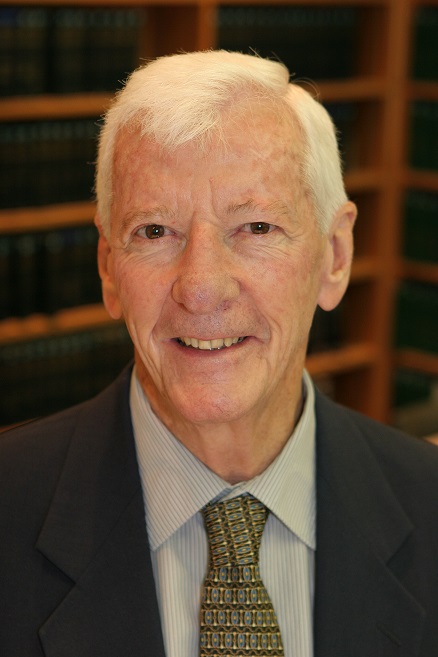
Johan D. van der Vyver is the I.T. Cohen Professor of International Law and Human Rights in the School of Law of Emory University in Atlanta, Georgia in the United States and an Extraordinary Professor in the Department of Private Law of the University of Pretoria in South Africa. He was formerly a Professor of Law at the University of the Witwatersrand, Johannesburg and the Potchefstroom University for Christian Higher Education in South Africa. In the period 1995-1998 he also served as the Human Rights Fellow of The Carter Center. His current teaching obligations comprise Public International Law, International Human Rights, International Criminal Law, International Humanitarian Law, and a seminar on Comparative Bills of Rights and one on Implementation of International Law in the United States.
Prof. van der Vyver holds the degrees of Bachelor of Commerce, Bachelor of Laws, Honours Bachelor of Arts in Philosophy (Potchefstroom University); Doctor of Laws (University of Pretoria); and the Diploma of the International and Comparative Law of Human Rights (International Institute of Human Rights, Strasbourg). He was awarded the Doctor of Laws degree (honoris causa) by the University of Zululand in 1993, and the Doctor of Laws degree (honoris causa) by Potchefstroom University in 2003.
He is the author of eleven books and monographs and close to 300 chapters in books, law review and other articles, and book reviews. His research interests and publications include human rights, international criminal law and a great variety of other subject-matters.
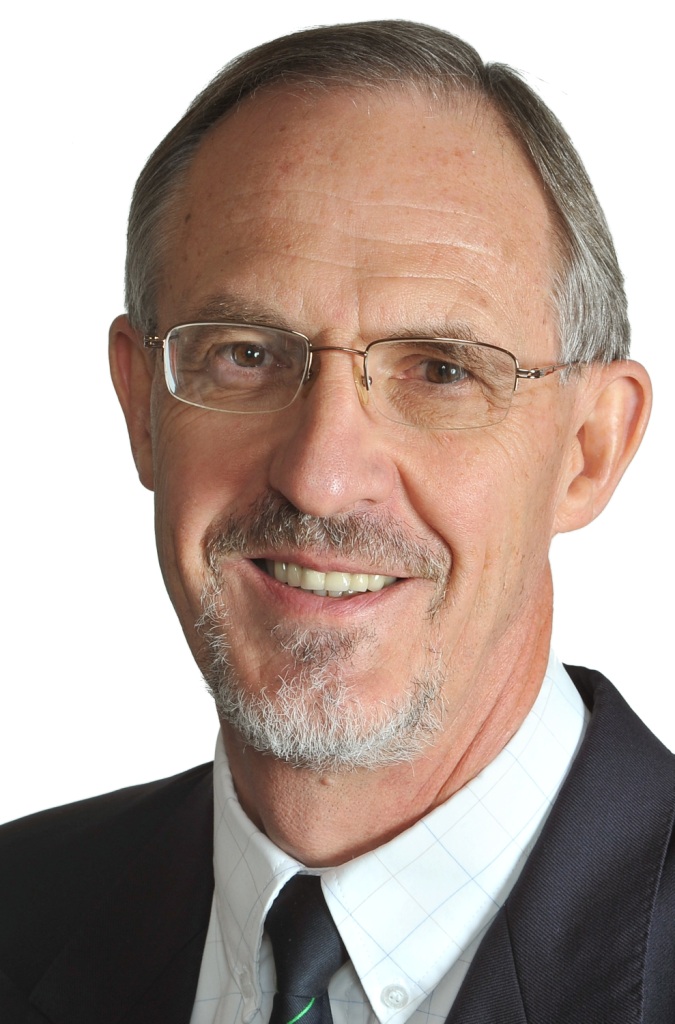
Francois Venter has taught law since 1974 in the Faculty of Law in Potchefstroom – since 1980 as professor. He was dean 2001-2012. He regularly visited Germany on research grants from the Alexander von Humboldt Foundation since 1979. He was Convenor of the Technical Committee on Constitutional Affairs of the Multiparty Negotiation Process (MPNP) in Kempton Park May to December 1993 (the Committee was responsible for the formulation of a large part of the first fully democratic Constitution of South Africa). He was President of the South African Law Deans' Association 2009-2010. He has been Promoter for eleven completed doctoral theses. Hw was rated by the National Research Foundation of South Africa in 2011 as a researcher "who enjoys considerable international recognition by his peers for the high quality and impact of his recent research outputs."
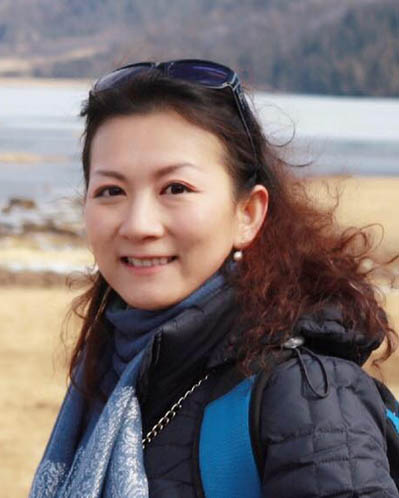
Dr. Yuting Wang holds a PhD in Sociology from the University of Notre Dame. Her research mainly focuses on religion and minorities in the U.S. and China. She is especially interested in Muslims, both immigrant and indigenous, in these two societies. In her dissertation, she studied the internal dynamics of a racially and ethnically diverse mosque and examines the intricate process of identity negotiation and construction among immigrant Muslims in the post-9/11 American society. She has taught at the University of Notre Dame and Northwestern University, Illinois. She is currently revising her dissertation into a book and conducting a survey examining the values and worldviews of college students in the UAE.
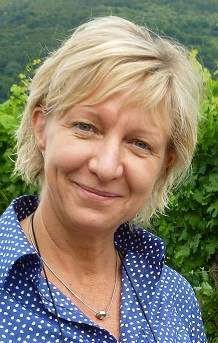
Hildegard Warnink studied Theology, Philosophy and Canon Law at Katholieke Universiteit Leuven. She has taught Marriage Law of the Church at Leuven University since 2001. She has been teaching at the Universities of Amsterdam (NL), Nijmegen (NL) and Stellenbosch (S.A.). She has published on Marriage Law and on the Position of Women in the Church. She is an Ecclesiastical Judge at the Church Tribunals of the Archdiocese of Mechelen-Brussels (B).
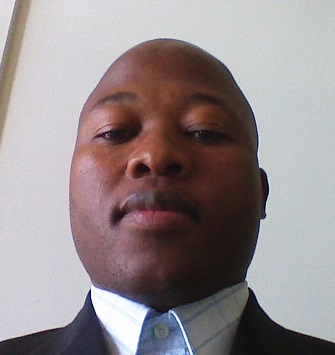
Bonginkosi Dennis Xulu is the Catholic priest of the Diocese of Eshowe – South Africa. He obtained his Bachelor in Sacred Theology (BSC) through the Urbanian University (Rome) in 2002 and a Bachelor in Administration (Badmin) from the University of South Africa (UNISA) the same year, 2002. In the year 2010, he obtained his Masters in Society, Law and Religion from KU Leuven. Currently, he holds a Licentiate in Canon Law (JCL) and a Masters in Canon Law which he obtained in KU Leuven in 2012.
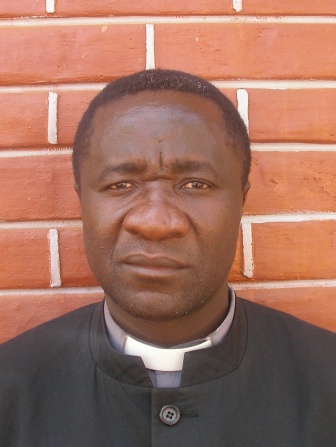
Rev Dr W.S. Zeze, born in 1970, is a Doctoral Degree graduate of Stellenbosch University in South Africa. Currently he is a minister of the Buwa Congregation of the Church of Central Africa Presbyterian (CCAP). He has attended conferences in South Africa, the Netherlands and Malawi where he has presented papers inter alia Inhabiting Traditions, Reconciliation, Christ the Head of the Church: Authority, leadership and Organizational structure of the CCAP Nkhoma Synod. He envisaged to author books on why and how other churches grow? Secularism: A Challenge to the Modern Church. Church-state Relationship: A Contemporary View addition to Women Ministry, the one he authored in 2008. He is looking forward to becoming a lecturer in Church History, Church Law and Church Polity and History of Christian Religion.
